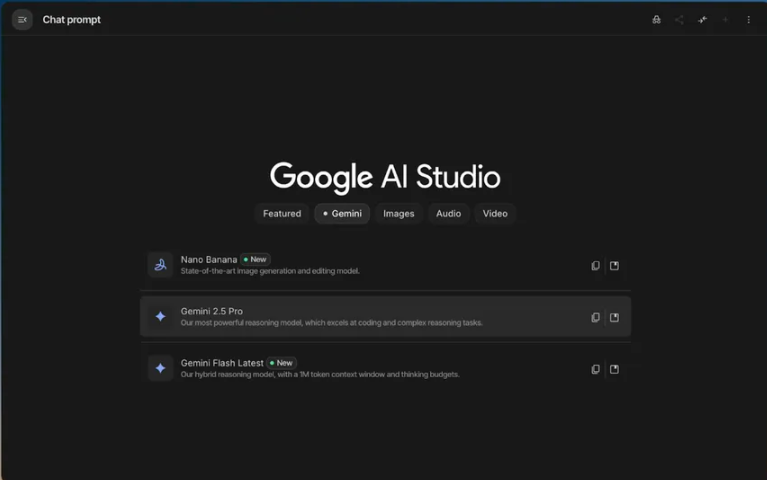Copyright SiliconANGLE News

Google LLC said today it’s bringing a “vibe coding” experience into its AI Studio platform to facilitate easier application development for both coders and noncoders. The update means users can enter simple prompts to generate working applications and positions the AI Studio platform as a gateway to the company’s broader artificial intelligence ecosystem. Google AI Studio was launched last year and is aimed at developers and nontechnical users who want to create AI applications for work. It’s different from the company’s better-known Vertex AI platform, which offers a more comprehensive environment for creating advanced models and is aimed at specialists such as data scientists and machine learning engineers. With this week’s update, Google is transforming AI Studio into a platform that lowers the barrier to entry for rapid AI application prototyping and deployment. The company has integrated a comprehensive vibe coding workflow into the platform, so users can enter simple natural language prompts and higher-level instructions to create applications that cater to their needs. There are a number of new features in the platform that enable this experience. For instance, there’s a new application gallery and model selector in the “Build” section of the platform. Google is also adding support for “secret variables,” which make it possible to store sensitive application programming interface keys securely for production apps. Google also talked about some new modular “superpowers,” which allow users to enhance their prompts with a simple click. They’re designed to accelerate AI outputs and enable the underlying Gemini model to conduct deeper reasoning, media editing and other tasks. There’s also a new “I’m Feeling Lucky” button that users can click on to receive random prompt suggestions, which the company said is meant to help inspire user’s creativity. And once the basic app has been generated, there are new tools for editing specific user interface elements. Users can also instruct Gemini to change the UI in targeted ways, the company said. When users are happy with their prototype app, they can deploy it directly from the platform onto Google Cloud Run with a single click, and this will generate a live URL for testing and sharing. Gemini 3.0 launch imminent? Google’s new vibe coding experience looks to be a response to the recent launches of enhanced AI coding tools from rivals such as OpenAI, Anthropic PBC and Salesforce Inc. as well as a host of startups. For instance, OpenAI’s new GPT-5-Codex tool is a new offering that’s designed for “long-duration coding tasks,” while Anthropic’s Claude Sonnet 4.5 introduced advanced capabilities for writing software. Meanwhile, Salesforce is making a play with Agentforce Vibes, which is meant to address some of the security and reliability issues with AI-generated code. It embeds strict security and governance controls into the development process. More importantly perhaps, the update to Google AI Studio comes amid expectations of the imminent release of the company’s latest large language model, Gemini 3.0. There has been increased speculation in recent days that the company is about to launch the successor to Gemini 2.5 Pro, whose capabilities appear to have been surpassed by new rival offerings. At the weekend, two powerful new LLMs appeared on the public testing platform LMArena. They’re called “lithiumflow” and “orionmist,” and there’s no information available about who actually built them, but WinBuzzer says it’s likely that they are pre-release versions of Gemini 3.0 Pro and Gemini 3.0 Flash, made available for anonymous final testing. The theory makes sense considering how good they are, with various users citing powerful new capabilities, like their advanced visual reasoning skills. Google Cloud Chief Executive Thomas Kurian recently talked about the company’s platform-first approach to AI, saying that many companies only provide models and toolkits. “They are handing you the pieces, not the platform,” he said. “They leave your teams to stitch everything together.” Google meanwhile, has emphasized the need for a highly integrated ecosystem for AI tools that will lower the barrier to entry and enable everyone to build sophisticated applications, and today’s release appears to position AI Studio at the forefront of that approach. Image: Google



